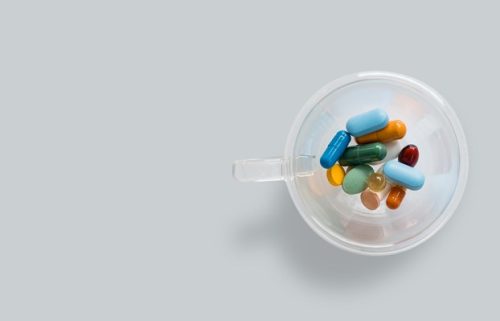Why Do Senior People Have Problem With Swallowing
If you have any senior loved ones, you might have noticed that with growing age, they start to suffer from several health conditions. They struggle to lead a regular life. Swallowing difficulty is one of them.
Difficulty swallowing is also known as Dysphagia, which is a common condition among senior citizens. Statistics state that 15% of all elderly adults often suffer from this condition. In most cases, it has been seen that older people also struggle while swallowing pills.
This particular thing can be handled by using pill swallowing assistance gel. But a lot of elderly people also suffer from swallowing difficulty when it comes to swallowing food as well. The reason behind this can be a lot of things.
Here, in this article, we will talk about that. First, let’s check the symptoms of Dysphagia.
Symptoms Of Dysphagia
When older people are suffering from Dysphagia, it is not difficult to tell. Choking on food and water on a regular basis can often confuse us. There are some subtle symptoms that will help you understand whether it is Dysphagia and needs your attention or just a matter of time.
Here are the most common symptoms of this condition.
- Drooling.
- The voice makes a gurgling sound, especially after they have had something to drink or eat something.
- Losing weight without even trying because they are avoiding drinking and eating.
- Taking a long time to finish the meal.
Reasons For Dysphagia: Choking On Water
Now, we will answer the question you are searching for, why is it so hard for elderly people to swallow often? A number of conditions play a major role when it comes to Dysphagia in elderly adults. Here they are.
- Acid reflux.
- Poorly fitting dentures or poor oral health.
- Stroke.
- Side effects from some particular medications.
- Cancer of the mouth, esophagus, or throat.
- Cognitive disorders, like dementia or Alzheimer’s.
Sometimes, Dysphagia is just another normal sign of aging. When people get older, their throat and mouth muscles start to weaken. As a result, they start to experience swallowing difficulties.
What You Can Try
In case you suspect that your elderly loved one is suffering from Dysphagia, it is best to consult with an experienced doctor without wasting any more time. Using several techniques, the doctor will determine whether the individual actually has Dysphagia or if the reason is something different.
- Endoscopic swallowing test.
- Visual examination of the esophagus.
- Esophagus muscle test.
- A swallow test involves being x-rayed after swallowing a contrast solution. Here, the individual needs to swallow various liquids with different consistencies.
Examining this way, the doctor will be able to find out what the exact cause of Dysphagia is.
What About The Treatment?
Here are the basic treatments of Dysphagia you can opt for, or your doctor will prescribe the most effective one on the basis of the severity of the condition.
Proper Medication Administration
Individuals who have aphasia should not be advised pills to tackle with water. This might increase the risk of choking. Instead of giving usual pills, they need to be administered with a thick liquid, like a smoothie.
The pills also can be crushed and mixed with an easy-to-swallow, thick food, such as applesauce or pudding. Here, you need to ensure that the food is either sweet or has a strong flavor so that the taste of the medication can be masked.
Maintain Hydration
Elderly adults often get dehydrated, especially when they are suffering from Dysphagia. In case they cannot drink plain water, drinking anything will be difficult for them as well. Here, you can help you’re older loved one by making their drink thickened.
You will find several products, like thickening gels and powders, which will make their drinks super safe to swallow.
More Options To Try
Apart from the major treatment options, here are some more things you can try to help your elderly loved ones.
- Ask them to avoid straws.
- Make some necessary dietary changes.
- Opt for swallowing therapy.
- Assist Them with improved postures.
- Use a feeding tube.
Disclaimer:
The information provided in this article is for general informational and educational purposes only and is not intended as medical advice, diagnosis, or treatment.
We are not medical professionals. Swallowing difficulties (dysphagia) can be caused by a variety of medical conditions, some of which may be serious. Always consult a qualified healthcare provider, physician, speech-language pathologist, or other licensed medical professional for proper evaluation, diagnosis, and treatment.
Never crush, alter, or mix medications without first consulting a pharmacist or healthcare provider, as doing so may change how the medication works or increase the risk of side effects.
If an elderly individual experiences frequent choking, unexplained weight loss, dehydration, chest pain, or difficulty swallowing liquids or solids, seek medical attention promptly.
Care decisions should always be made based on an individual’s specific medical needs and under the guidance of a qualified healthcare professional.




